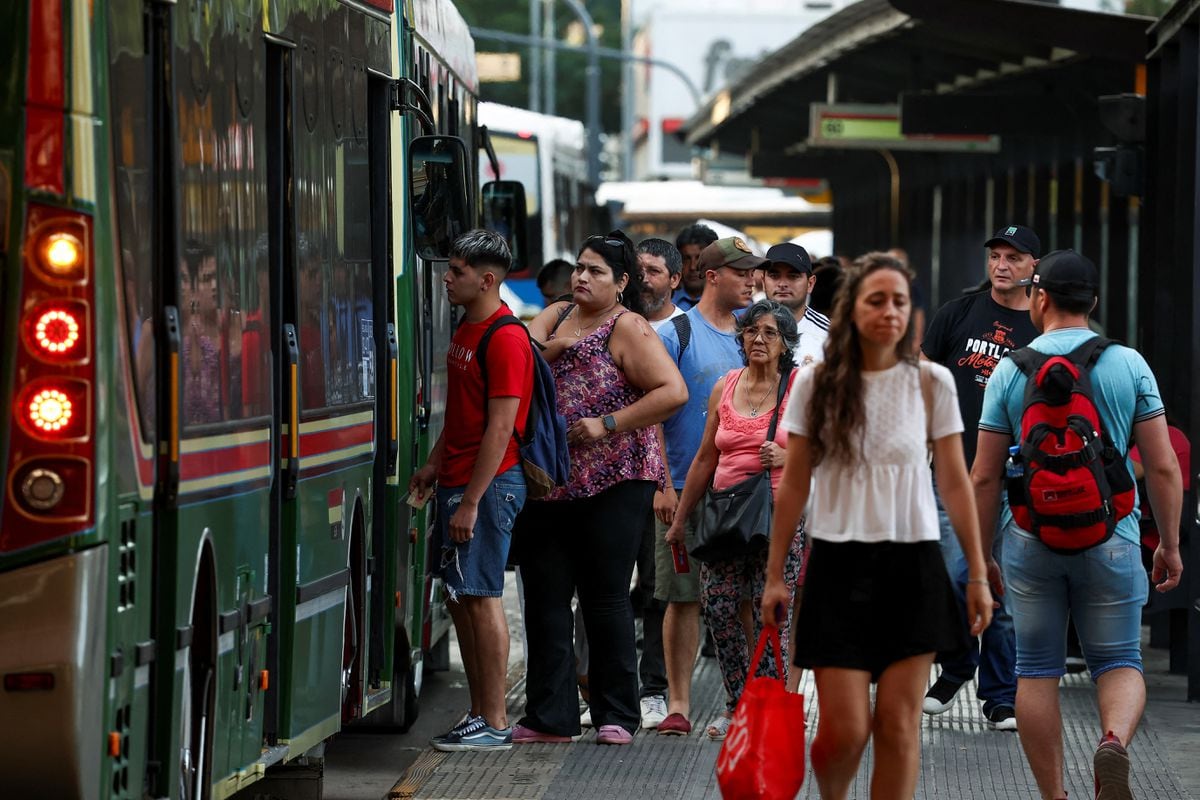The unions of Argentina have hardened their fight against the Government of Javier Milei.
The country woke up on Wednesday without train service and the forceful measure continued until midnight.
This Thursday there is a strike called for health personnel and on Monday, unless an agreement is reached before, it will be teachers who will be absent from schools on the first day of classes in more than a dozen provinces.
The union mobilization responds to Milei's harsh fiscal adjustment, the fastest in the last four decades of Argentine democracy and everything indicates that it will grow because the Government is not willing to give in.
“The pertinent measures are being evaluated [against those responsible for the railway strike] so that it does not remain without consequences,” warned presidential spokesman Manuel Adorni.
In January, the first full month of the new Executive, the Argentine public sector recorded a financial surplus.
It was the first monthly result without a deficit since August 2012, but it was obtained at the cost of a drastic reduction in public spending.
Investment in public works fell by more than 80%, subsidies for transportation, gas, light and electricity suffered a cut of 64% and social benefits—such as pensions and aid to the most vulnerable population—decreased by 30%.
Inflation did the dirty work for the Government: between December and January prices increased by 46%, well above state transfers.
The situation was repeated in the private sector: the salaries of formal workers lost 23% of purchasing power in the last two months.
The leader of the La Fraternidad train union, Omar Maturano, emphasized the loss of purchasing power to justify the railway workers' strike: “We are not demanding any salary increase, only a recomposition of what we ask for due to the inflationary increase, it is about of an update,” Maturano declared to local media.
Argentina is today the country with the highest inflation in the world, at 254.2% year-on-year.
Trains out of operation at the Retiro station in Buenos Aires (Argentina), on February 21.AGUSTIN MARCARIAN (Reuters)
The Government came to the shock.
“Being one of the sectors with the worst image in society, unionism should fight for the real interests of the workers;
They have nothing as fraternal,” said the presidential spokesman, Manuel Adorni, in his daily press conference.
Adorni accused the unionists of abandoning the dialogue table and harming more than a million people who travel by train every day.
Public opinion polls agree with the ultra-liberal Executive: unions are among the worst-rated institutions in Argentina, with a negative image close to 70%.
However, their strength has remained almost intact during successive governments thanks to great negotiating skills: they offer social peace in exchange for more salaries for their members and more money for their unions.
The closeness of many of its leaders to Peronism has not been an obstacle until now to sit at the table with presidents of other political parties, but the confrontational strategy chosen by Milei represents a change of course.
Weeks of great social conflict loom on the horizon.
Strike in medical centers
This Thursday, the health workers' strike will affect hospitals, clinics, laboratories and nursing homes.
“We will carry out all the necessary union actions for the salary recomposition of our colleagues,” said Héctor Daer, the general secretary of the Federation of Argentine Health Workers Associations (FATSA).
The health sector faces another dilemma: in March the deregulation of private health care and the health care system that depends on unions and which is one of its largest sources of financing will come into force.
Milei seeks to weaken the Argentine unions, among the most combative in Latin America, but they warn that they will show their strength in the streets.
People wait for trucks at Puente Saavedra during the train strike, this Wednesday.AGUSTIN MARCARIAN (Reuters)
Daer is also one of the leaders of the largest labor union in Argentina, the General Confederation of Labor, and one of those responsible for the general strike called against Milei just 45 days after his inauguration.
“The National Government boasts of having a surplus in January for not sending food to the canteens and lowering salaries for teachers,” Daer denounced through social networks.
Days ago, the veteran union leader described the failed negotiation to increase the minimum wage as a parody.
The Government unilaterally set it at 180,000 pesos (about 200 dollars at the official rate) per month, a figure well below the 280,000 pesos (325 dollars) that a family needs to be able to buy food, that is, to not be destitute. .
According to the latest official data, dating from mid-2023, 9.3% of the Argentine population was indigent, but the projection of the Social Debt Observatory of the Argentine Catholic University raises the current figure to 15%, which It would be the worst record since the corralito crisis of 2002.
The Government is now putting pressure on teaching unions to avoid the image of empty public schools next Monday.
The presidential spokesperson has warned that they are considering declaring education as an essential service, which would prevent teachers from going on strike.
The sector's unions reject a measure that they consider unconstitutional and warn that the Executive is trying to "cut off the possibility of protest" instead of resolving the conflict through dialogue.
Subscribe here to the EL PAÍS América newsletter and receive all the key information on current events in the region.
Subscribe to continue reading
Read without limits
Keep reading
I am already a subscriber
_

